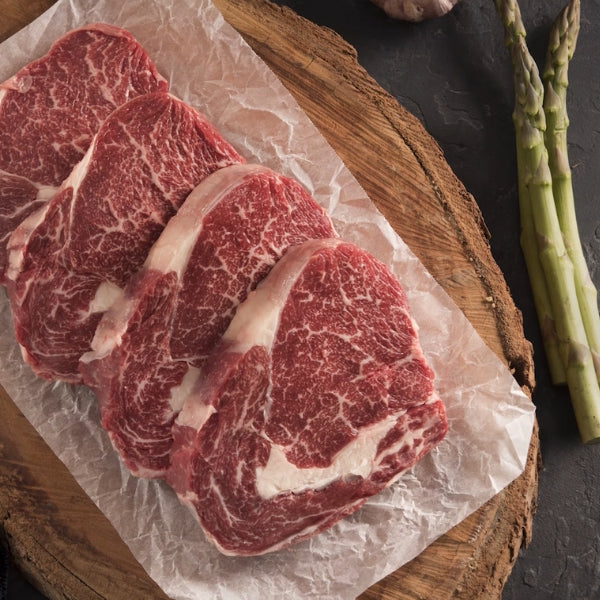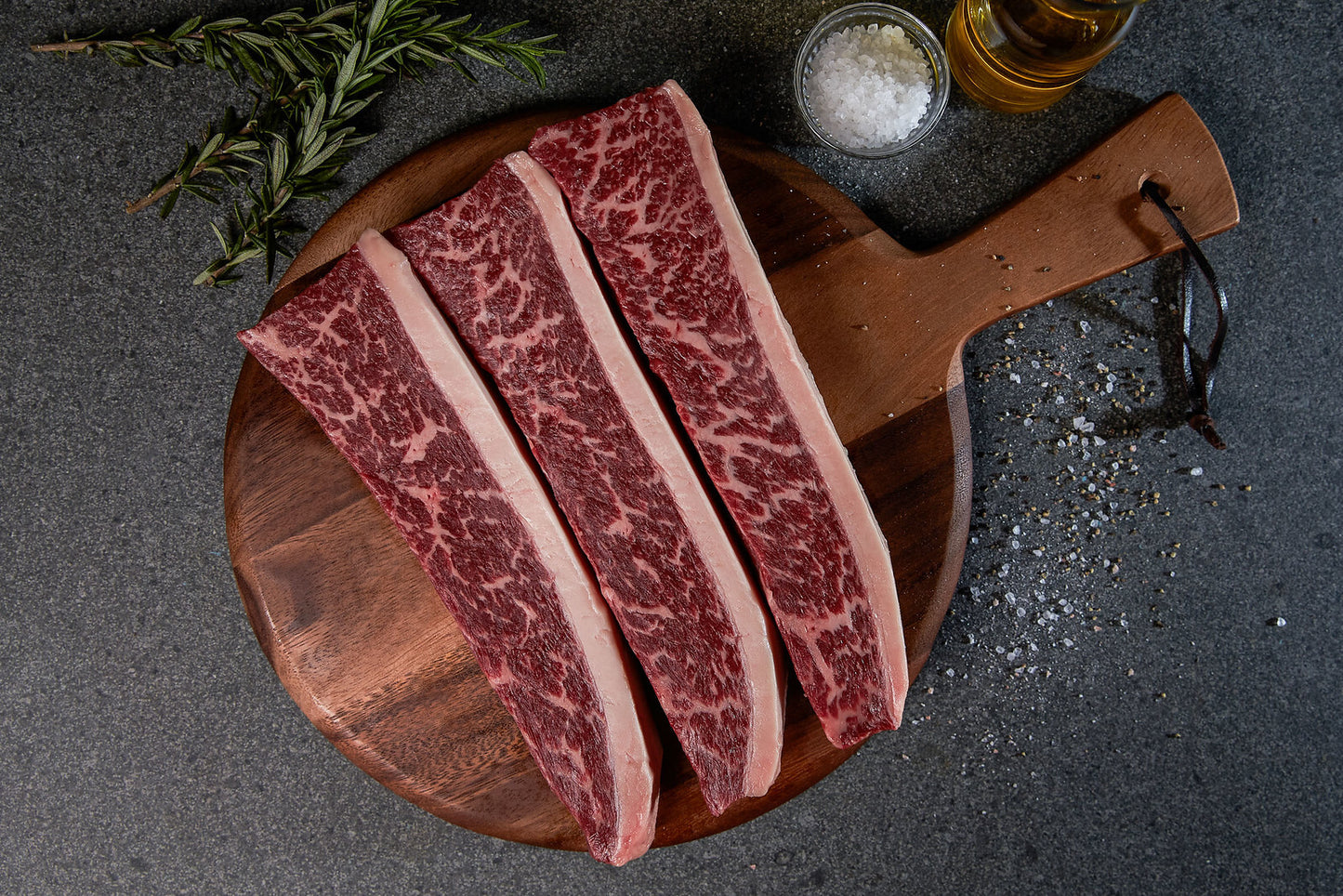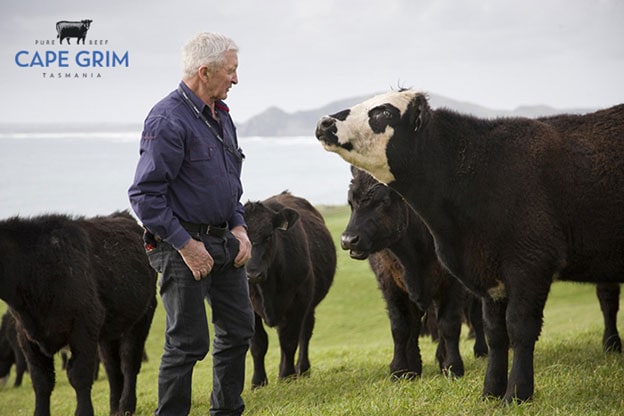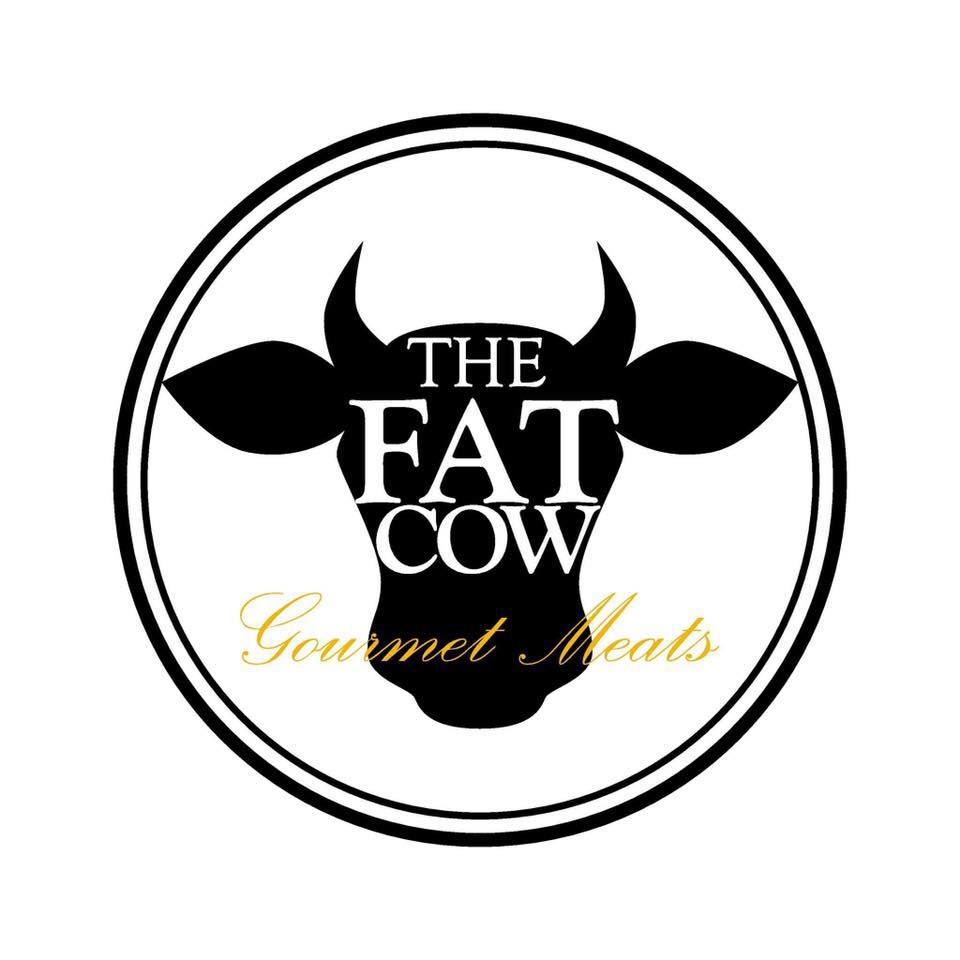

Little Joe Beef
Little Joe is the global epitome of grass fed beef. It is exclusive in
supply and a luxurious eating experience perfectly suited to the most
discerning chefs and niche retailers where only the very best beef is expected.
The Little Joe promise is to deliver an all-natural grass fed beef product
that offers a minimum marble score of four (AusMeat standard). A feat near impossible to replicate.
Naturally raised by our accredited farmers in southern Australia, Little Joe
is guaranteed to be independently 3rd party audited to ensure our
livestock meet our stringent “never ever” raising claims.
Additionally, the JBS Farm Assurance program ensures our producer base meets
our high standards of animal welfare, social responsibility, environmental
stewardship and workplace health and safety in order to future-proof the
pristine farming country so future generations will have the opportunity to
enjoy the remarkable dining experience Little Joe delivers.
The sum of these promises ensures that when you choose Little Joe grass fed
beef, you are choosing a product that is not only good for you, but good for
the cattle and environment.

Sanchoku Wagyu
The Japanese philosophy of Sanchoku follows the principal of food and produce being “direct from the source”.
This practice promotes transparency between customers and producers, championing the production of the highest quality produce and care to animals. Our Sanchoku Wagyu beef honours this philosophy, blending the finest Japanese Wagyu genetics with the supreme quality and purity of Australian beef.

Cape Grim Beef
In the North-Western corner of Tasmania 40° 41' South, those world-famous Roaring Forties whip away any trace of pollution as they blow across the Southern Ocean. Combined with low levels of development and its sheer distance from other land landmasses, Cape Grim’s air quality is pretty unique – and the local baseline air pollution station readings prove it.
The station is one of 25 in the world and the only one in Australia. Samples of the atmosphere from Cape Grim were first taken over 20 years ago and are sent all over the globe for scientific use as THE benchmark for air quality.
